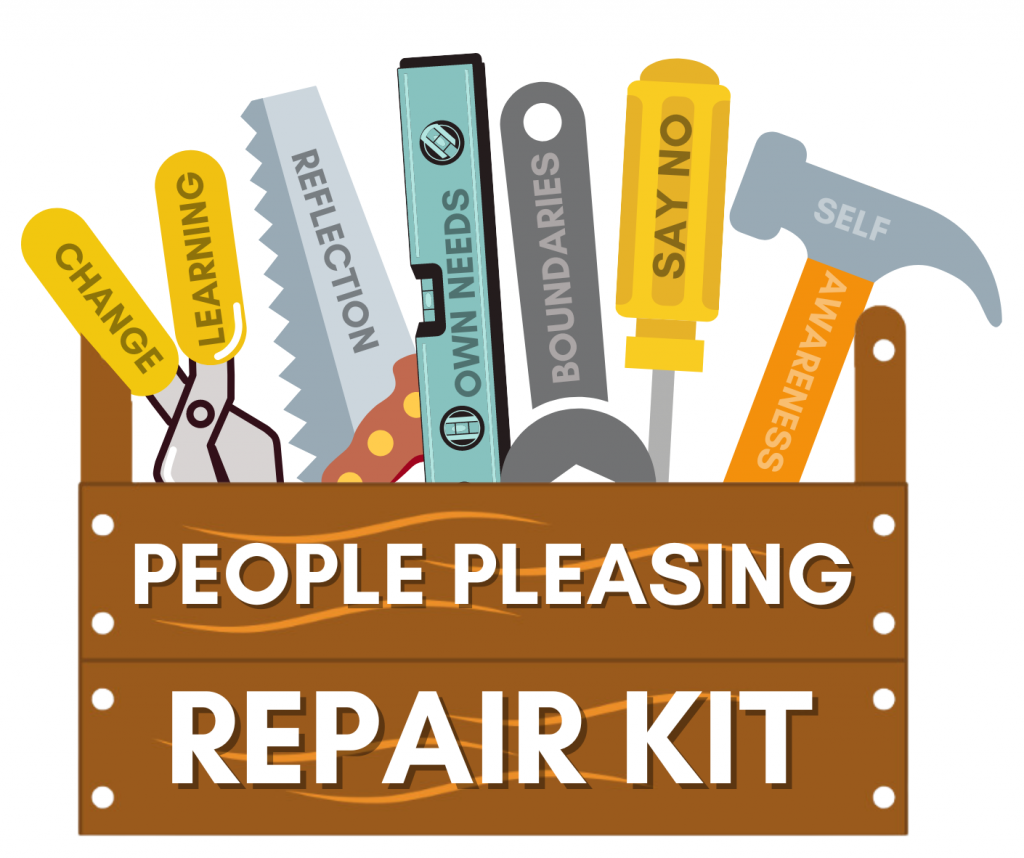
People pleasing is the act of putting others needs ahead of your own. This is different to being nice. Being nice helps us to connect others and makes us feel good about ourselves. People pleasing is detrimental to our wellbeing, our confidence and our sense of identity.
The foundations of people pleasing often sit in childhood. We know nothing about anything when we first arrive into this world and we are reliant on other people showing us the way. Parents, wider family, educators all play a part in teaching us who we are and how we should be in the world.
When a child is repeatedly validated, they build confidence in their own choices and as adults, have no or little need to seek the approval of others.
If a child is repeatedly criticised, they are more likely to develop low self-esteem and doubt/question their value or sense of self. They may also get really good at adapting their behaviours in order to avoid criticism because guess what, criticism isn’t nice, it hurts and humans will do anything to avoid pain. They learn to people please.
Here’s a few signs that you might be a people pleaser:
- You say yes way too often and frequently at a cost to you
- You feel really uncomfortable saying no – awful even
- You adapt behaviours/opinions/vocabulary to fit in with the people around you
- You apologise for things that are not your fault
- You feel terrible about letting others down, even when it’s out of your control
- You fear not being liked
- You avoid conflict
- You doubt yourself and ask others for validation/approval, sometimes over really simple things
- You go along with other people’s choices
- You pretend to be happy/having fun when you are not
- You suffer any of anxiety, stress, overwhelm, burnout, depression, substance abuse, passive aggressive behaviours
So, you’ve identified you are a people pleaser – what now?
Self awareness is one of the greatest tools in our toolkit when it comes to wellbeing, and positive mental health. The first step in changing any behaviour is to recognise where and why it is happening.
Change is an essential part of getting to where you want to be. Setting new boundaries, developing new behaviours, creating new ways of thinking and reacting to situations and people. This takes time and repeated practice.
It can be helpful to have support. Talking to friends, reading books, listening to podcasts, building in time for reflection and introspection, journaling, therapy. All can play a part in your shift away from detrimental people pleasing behaviours.
Neurodivergent people are at an increased risk. Even with the most wonderful early parenting experiences, society taught us that being different isn’t good. Criticism and judgement were and often still are a daily reality for some. Is it any wonder that people learn to people please in order to feel liked and accepted?
Our Facebook group Different Not Less provides a space where you can connect with others and seek support around people pleasing in relation to ADHD and Autism.
Even if you do not see yourself as a people pleaser, you can still make a difference. Notice others around you – do you see their people pleasing behaviours? Encourage and support them. Don’t always ask of them, help them by modelling good boundaries. Show compassion and in doing so, you can be part of their change.
If you would like 121 support, please reach out to me here.
